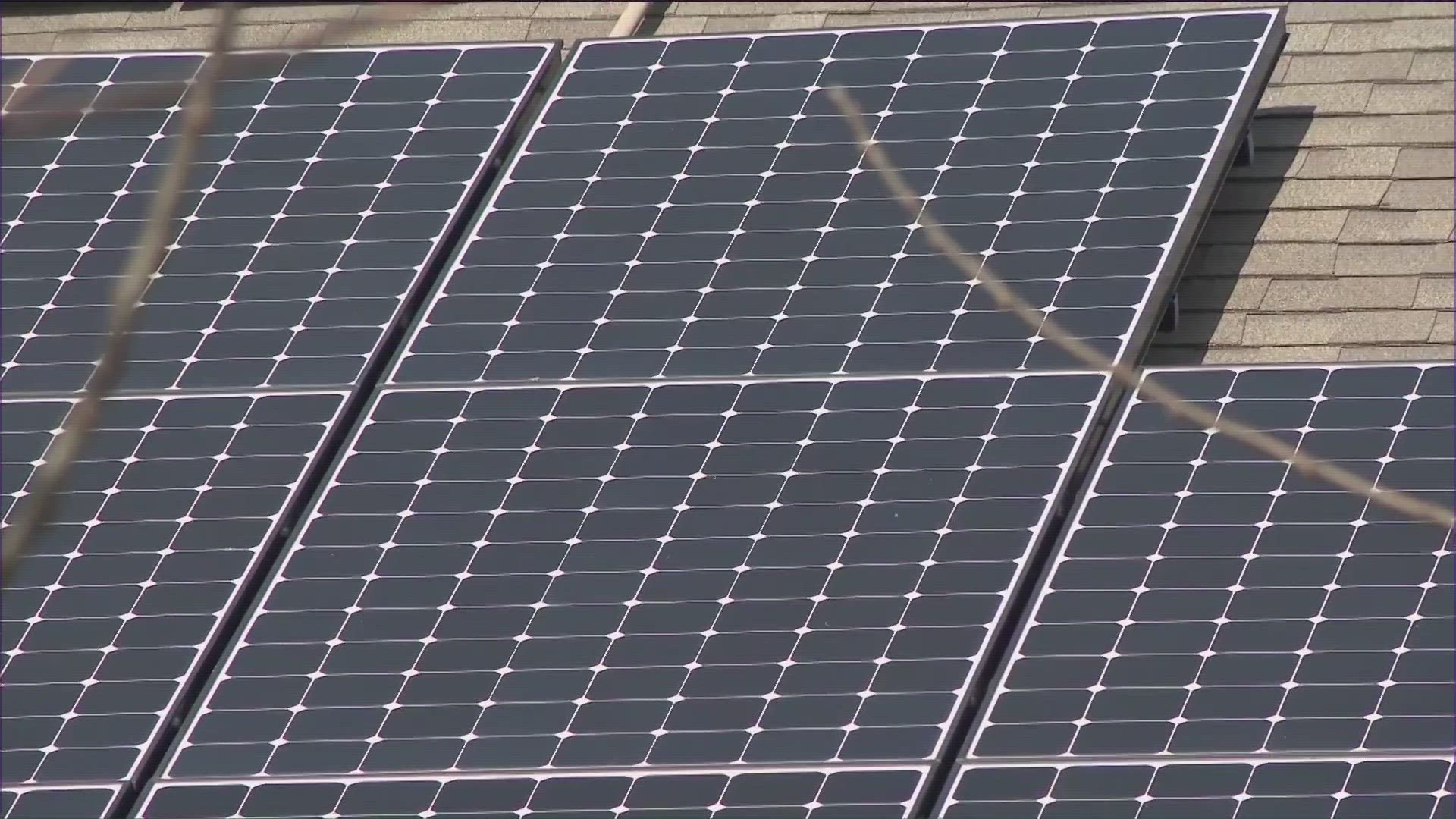AUSTIN, Texas — Summer is here, which means it’s time to buckle up for home electric bills being more expensive than ever.
While homeowners are looking to do summer home improvements projects, solar is an option that can put money back in your pocket. While it may seem expensive to go solar, it can be even more expensive to pay your utility bill each month with inflation and extreme weather conditions, as the Texas electric grid is historically unreliable.
According to the National Renewable Energy Laboratory (NREL), solar increases your home’s value. NREL said for every dollar that a solar panel saves on your electric bill, it increases the value of your home by $20.
"The idea that putting solar panels on your house to offset that and to generate kilowatt hours from the sun is a logical solution for people. So the idea that you can hedge against kind of utility price inflation and lock in your price for power, so to speak, the panels are warranted for 25 years. So you've got a nice long-term horizon that they work," said Bret Biggart, CEO of Freedom Solar.
Biggart said with Austin Energy, there's an incentive to go solar for residential homeowners that's about $2,500.
"There's a federal incentive as well," he said. "It's 30% of the total price, and that's to all customers. That's now locked in for a good foreseeable future, almost 10 years."
Biggart said he worked with a customer who had an analysis done showing that after they installed solar, they increased the value of the home by $20,000.
"So that's a substantial amount. Then the other piece is from a property tax perspective. If you go put solar on your house and you invest, we'll say $30,000, it's exempt from an increase in your property taxes. So your the investment in solar doesn't reflect in your property tax increase, which is pretty cool," Biggart said.
Biggart said if homeowners put solar on their roof, they're able to save power on a monthly basis for up 25 years, which is a valuable thing to a potential homebuyer.
"It's just the idea that you're going to buy a home that's going to have a much smaller electric bill for 25 years. There's value in that, particularly given the price of power is going up and will continue to," Biggart said.
Things to consider when going solar include if your home is in a shaded area or a roof that is north facing, making it less productive.
Biggart said there is still a lot of solar work to be done nationwide and in Central Texas.
"So 100 million homes in the U.S. that are good for solar today, there's about 5% penetration. So we got 95% of the market to go," Biggart said. "So we're seeing a lot of growth, but there's a huge runway of potential solar places that would work great residential and commercial."

